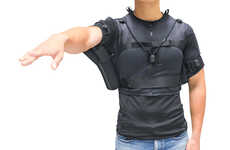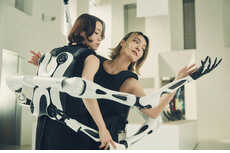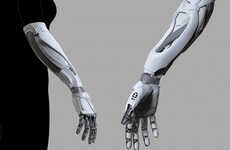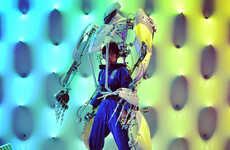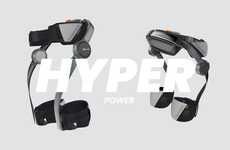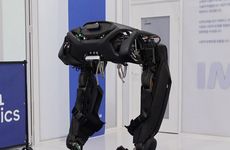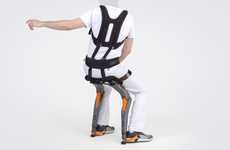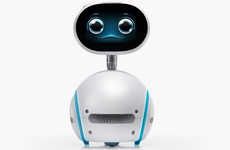
SRI International's Superflex Aims to Help Disabled in Everyday Life
Meghan Young — April 23, 2016 — Tech
References: sri & techcrunch
Superflex is a robotic human augmentation project that feels as though it's straight out of a comic book. The prototype is a suit that enhances a person's physical abilities. Of course, the suit isn't meant to be donned by amateur vigilantes. Instead, through robotic human augmentation, the developers aim to help disabled individuals perform daily tasks in a manageable way again.
These developers hail from SRI International. By focusing on real customers, the company believes such a product will be able to see the light of day sooner. Tech Crunch writes that the robotic human augmentation design comes as "a full-body suit filled with soft muscle-like actuators that detect your movements and give them a boost."
These developers hail from SRI International. By focusing on real customers, the company believes such a product will be able to see the light of day sooner. Tech Crunch writes that the robotic human augmentation design comes as "a full-body suit filled with soft muscle-like actuators that detect your movements and give them a boost."
Trend Themes
1. Robotic Human Augmentations for Disabilities - The development of robotic human augmentations can help disabled individuals perform daily tasks in an easier way, making it a trend in the assistive technology sector.
2. Soft Muscle-like Actuators - Soft muscle-like actuators can play a crucial role in the development of robotic human augmentations, making them more comfortable to wear and less restrictive.
3. Real Customer-focused Design - Designing robotic human augmentations, such as the Superflex suit, with real customers in mind can potentially speed up the development process and increase the chances of success in the medical equipment industry.
Industry Implications
1. Assistive Technology - Robotic human augmentations have the potential to disrupt the assistive technology industry by providing new solutions to help people with disabilities in their daily activities.
2. Medical Equipment - Developing robotic human augmentations for disability assistance can lead to disruptive innovation opportunities in the medical equipment industry.
3. Wearable Technology - Incorporating soft muscle-like actuators in wearable technology, like the Superflex suit, can provide a more comfortable and flexible experience for users, making it a potential area for disruptive innovation.
3
Score
Popularity
Activity
Freshness



